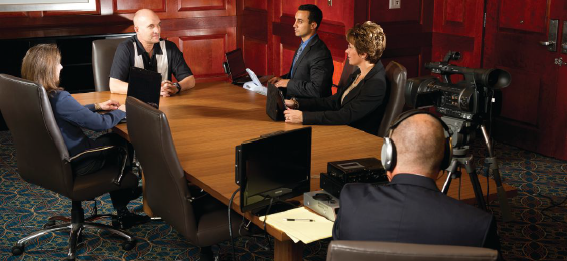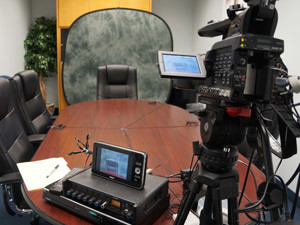High-Resolution Legal Videography for Accurate Evidence Recording.
High-Resolution Legal Videography for Accurate Evidence Recording.
Blog Article
The Role of Legal Videography in Depositions and Tests
Legal videography has arised as an important tool in both depositions and tests, providing a multifaceted technique to documenting witness testaments. As legal specialists increasingly recognize its value, it triggers a deeper evaluation of how these visual records can influence juror perceptions and trial results.

Relevance of Legal Videography
Lawful videography plays a critical function in the paperwork and presentation of depositions and tests. This specialized field combines technical abilities with lawful understanding to create a dependable record of process that can considerably affect situation end results. The appearance of legal videography improves the understanding of witness testament, enabling jurors and courts to observe not just the spoken words but additionally the disposition, emotions, and body language of the witnesses.
Additionally, lawful videography offers an unbiased account of events, reducing the possibility for misinterpretation that can occur with created records alone. This visual documents functions as an important device during trial discussions, promoting a more clear and more convincing narrative for both plaintiffs and accuseds. Additionally, the ability to replay video sectors during court procedures enables legal teams to stress vital points, reinforcing their arguments successfully.
The value of lawful videography expands past the courtroom; it likewise plays a vital function in protecting evidence for future referral, whether for allures or further lawful action. Therefore, its assimilation into the legal procedure is crucial for ensuring a reasonable and precise representation of the realities, eventually adding to the search of justice.

Process of Legal Videography
While capturing the nuances of depositions and trials, the procedure of lawful videography entails several important actions that guarantee premium, accurate recordings. Initially, a professional legal videographer prepares by assessing the case materials and understanding the certain demands of the deposition or trial. This prep work consists of acquainting themselves with the individuals and the context, which assists in capturing important information.
On the day of the recording, the videographer sets up the needed devices, which generally consists of high-def cams, microphones, and appropriate illumination. Making certain optimal angles and audio quality is vital, as it directly influences the efficiency of the recording. The videographer connects with attorneys and individuals to develop methods, ensuring that every person comprehends the recording process.
Throughout the deposition or trial, the videographer meticulously videotapes the proceedings, paying very close attention to both verbal and non-verbal signs. This consists of recording the demeanor and reactions of witnesses and lawyers. After the session ends, the videographer may modify the footage for clearness and conformity with legal requirements, creating a last product that precisely reflects the procedures for future reference and usage in legal contexts.
Advantages in Depositions
The consolidation of videography in depositions supplies many benefits that enhance the total procedure of collecting evidence. One main benefit is the capacity to record witness testimonies with aesthetic and auditory fidelity, giving a much more accurate representation of the witness's disposition, tone, and body movement. This multidimensional technique allows attorneys and juries to assess trustworthiness better than conventional written records alone.
Additionally, videographed depositions work as a powerful tool for maintaining testament. Should a witness become unavailable for trial, their tape-recorded deposition can be played in court, ensuring that their evidence stays easily accessible and relevant. This element considerably reduces the threat of shedding important information that can affect instance results.

Finally, videography boosts the total professionalism and reliability of the deposition procedure, instilling self-confidence in clients concerning the thoroughness of their legal representation (legal videography). By leveraging technology, attorneys can significantly boost the performance of depositions
Influence On Tests
In lots of trials, the integration of videography can considerably influence the discussion of proof and the jury's perception. Lawful videography catches witness statements and vital evidence in a vibrant style, enabling jurors to engage with the product on several degrees. This aesthetic component enhances the narration element of a trial, giving context and emotional resonance that typical text-based proof may do not have.
Additionally, video recordings can work as powerful tools for impeachment throughout cross-examination. When discrepancies develop between a witness's previous statements and their courtroom statement, video proof offers an unbiased recommendation that can guide jurors' viewpoints. This immediacy and clarity can strengthen the reputation of a celebration's story while concurrently undermining opposing debates.

Future Trends in Legal Videography
As we look toward the future of legal videography, several emerging patterns guarantee to improve its duty within the court room. One significant pattern is the combination of man-made knowledge (AI) in video clip evaluation and editing. AI can streamline the process of identifying essential moments in recorded depositions, allowing attorneys to swiftly access appropriate material, consequently improving effectiveness in situation useful reference prep work.
Furthermore, the increase of online truth (VR) and enhanced truth (AR) innovations is expected to transform exactly how jurors experience evidence. legal videography. By submersing jurors in a substitute environment, these technologies can give an extra profound understanding of complex circumstances, causing more enlightened considerations
Furthermore, the increasing need for remote depositions, sped up by the COVID-19 pandemic, will likely continue. Lawful videographers will require to adapt to brand-new software application and platforms to ensure high-grade recordings in digital settings.
Last but not least, the growing emphasis on information safety and security will certainly require more stringent procedures for storing and sharing video clip evidence. As the lawful landscape develops, lawful videographers should remain abreast of these trends to keep their relevance and performance in the judicial process.
Conclusion
In recap, lawful videography offers an essential function in the judicial have a peek at these guys procedure, boosting the honesty of depositions and trials. As technology continues to progress, lawful videography is poised to further transform its function within the lawful landscape.
Report this page